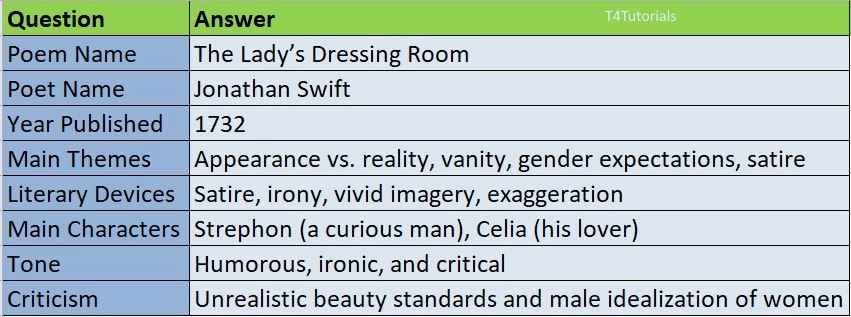Summary:
“The Lady’s Dressing Room” is a satirical poem written by Jonathan Swift in 1732. The poem humorously critiques the unrealistic expectations men have about women’s beauty by exposing the unglamorous reality of a lady’s dressing room. The poem follows a man named Strephon, who sneaks into his lover Celia’s dressing room, expecting to find an elegant and magical space. Instead, he is horrified by the filth, unpleasant odors, and various beauty products that reveal the effort behind a woman’s appearance. Swift uses irony and exaggerated descriptions to mock both men’s idealized views of women and the artificiality of beauty standards. The poem also reflects themes of disillusionment, vanity, gender expectations, and the conflict between appearance and reality. Through this humorous yet critical portrayal, Swift exposes the gap between how women are perceived and the reality of their daily grooming rituals.
10
Score: 0
Attempted: 0/10
Subscribe
| Question | Answer |
| Poem Name | The Lady’s Dressing Room |
| Poet Name | Jonathan Swift |
| Year Published | 1732 |
| Main Themes | Appearance vs. reality, vanity, gender expectations, satire |
| Literary Devices | Satire, irony, vivid imagery, exaggeration |
| Main Characters | Strephon (a curious man), Celia (his lover) |
| Tone | Humorous, ironic, and critical |
| Criticism | Unrealistic beauty standards and male idealization of women |